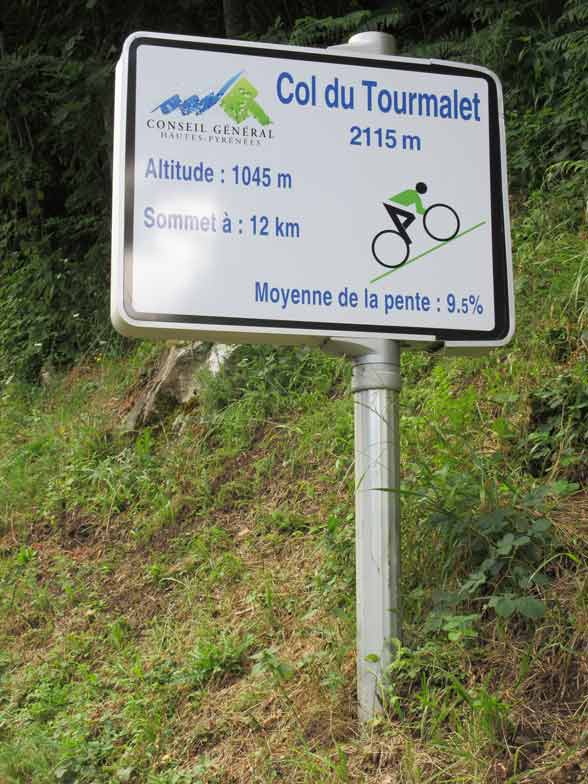 |
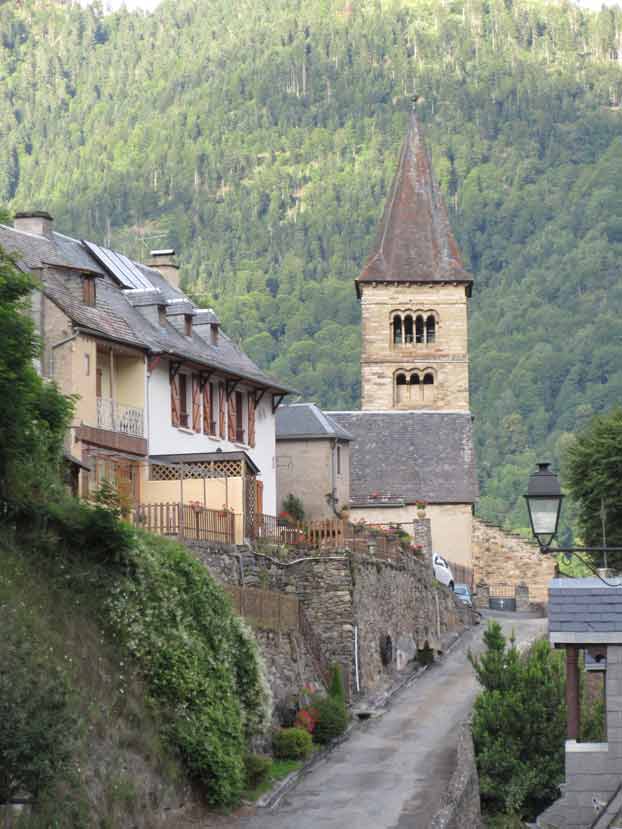 |
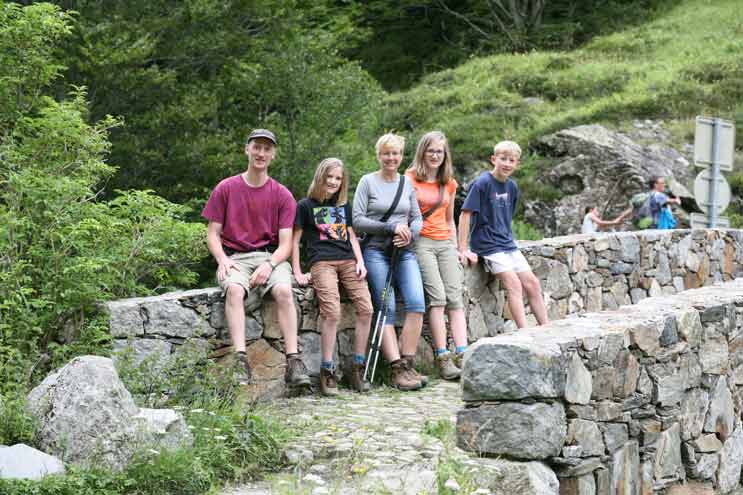 |
|||||
Deep in the Pyrenees |
|||||||
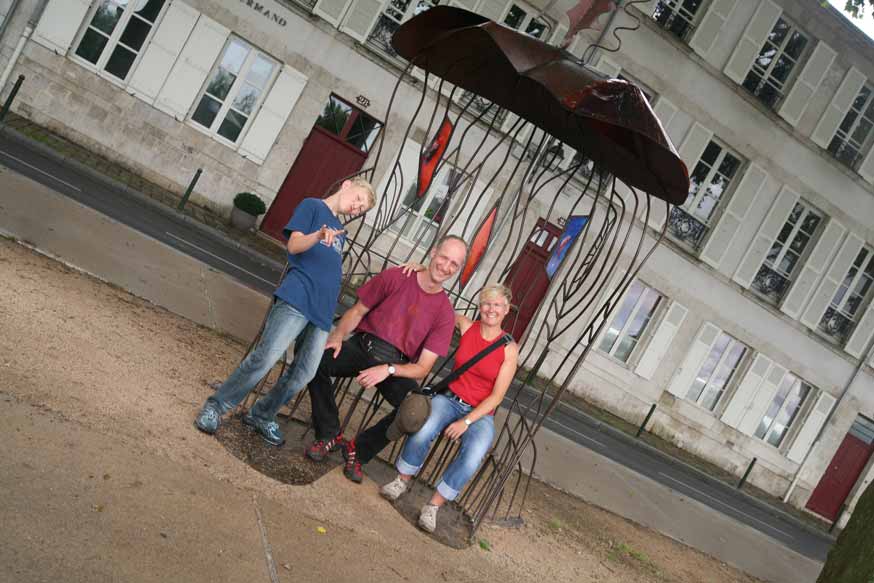 |
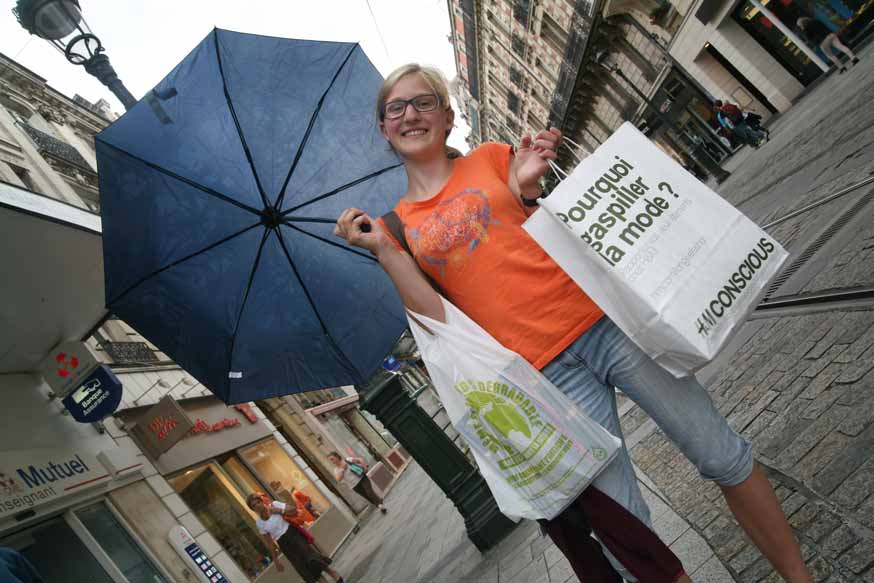 |
||||
Click on the photos to enlarge them. |
|||||
|
|
||||||||||||||||||||||||||||||||||||||||||||||||||||||||||||||||||||||
Agreeing on a vacation destination came faster than anyone would have expected: France, the country of red wine and savoir vivre, magnificent landscapes and the Tour de France. Where it will be interesting to see how well the Heinzelmanns get along with all the Québécois they picked up in Montreal. Mecki and Mike wrack their brains, check
maps, browse the internet, and ask their Montreal French-born neighbours Vanessa and Jean-Yves for tips, then they come up with a plan: two weeks in the Pyrenees, where France is at its wildest, where brown bears still roam
the mountains and griffon vultures circle the skies, where so many classic Tour de France passes wait to be climbed by bike. And right in the middle of all this, in Bagnères-de-Luchon, they’ve already found a beautiful
vacation home. “You and all your cycling”, is Franziska’s first comment, but then she gets to like the destination, too. After all, everything does sound pretty nice, and having well occupied parents should be fine for the
kids, too. “But it’s a long way from here” she says. “Yep” says Mecki “That’s why we’ll take our camping gear with us. We’ll spend a week to get to and also a week to return from the Pyrenees, with stops
wherever France is most beautiful along the way.” Not too bad a plan, the kids agree, and Mecki and Mike start looking for scenic destinations along the route. Eventually, the programme is as follows: After
a stop at Inga’s and Willy’s close to the Swiss town of Solothurn, they plan to head south into the Provence to Gréoux-les-Bains at the Verdon river, pass two days at Carcassonne, and have a brief stop in Toulouse for a tour
through the Airbus plant before eventually arriving in Luchon in the Pyrenees. For the return trip, a few days on the Île de Ré in the Atlantic and a short stopover at Orléans would be nice. |
In Gréoux-les-Bains, it turns out that the reservation of the campsite went perfectly fine, but another essential issue had been completely neglected: Who may share – or more correctly – who has to share a tent with whom? “One tent for the kids and the other for the parents would be …” starts Mike, but doesn’t manage to finish his sentence, because he’s interrupted by
a sharp “No way!!” from Franziska. “I’m not going to share a tent with my little brother!” And then all at once the kids start explaining why it is so utterly unacceptable to share a tent with the others, that mum
always snores, dad always wakes everyone up when he returns into the tent after his nightcap, that Katharina is catty, Felix mean, that Franziska spends hours in the washrooms, that the others are stupid in the first place, and so
on, and so on … But a solution has to be found somehow, and eventually Katharina, Felix, and Mike share the large tent – but only if Katharina’s and Felix’s places aren’t right next to each other, and if dad who would then have
to lie in the middle of the tent doesn’t wake up all the rest when after his nightcap … okay, okay, old story … – and Franziska and Mecki share the little tent. Next morning, Mike rubs his eyes in amazement: neither murder
nor manslaughter, everyone got along well with each other. Not a bad start into the vacations and things are even likely to improve because the bed under the pop top roof of the van and – weather permitting – the hammock will
further relieve potential tension in the tents. Gréoux-les-Bains offers a variety of activities. While the kids in an unusual show of harmony declare they need a chill out day at the pool, Mecki and Mike set off
for their first bike trip and cycle up the Gorges du Verdon, the Verdon canyon. With a couple of hundred meters of altitude difference the canyon is a pretty good preparation for the Pyrenees passes in the coming weeks.
And anyway, cycling is important this summer, because Mike built himself a cyclo-cross bike (for all those who are less crazy about bikes: kind of a road bike but capable of negotiating the off-roads), made of wood as always,
and he named it Woodstock, which he claims is a terrific pun in German because people will understand wood and stock is the German term for stick. After two more days in Gréoux-les-Bains – the first one swimming in the Lac de
Sainte-Croix and the second one hiking deep down in the canyon – it’s time to reach the next destination: Carcassonne. |
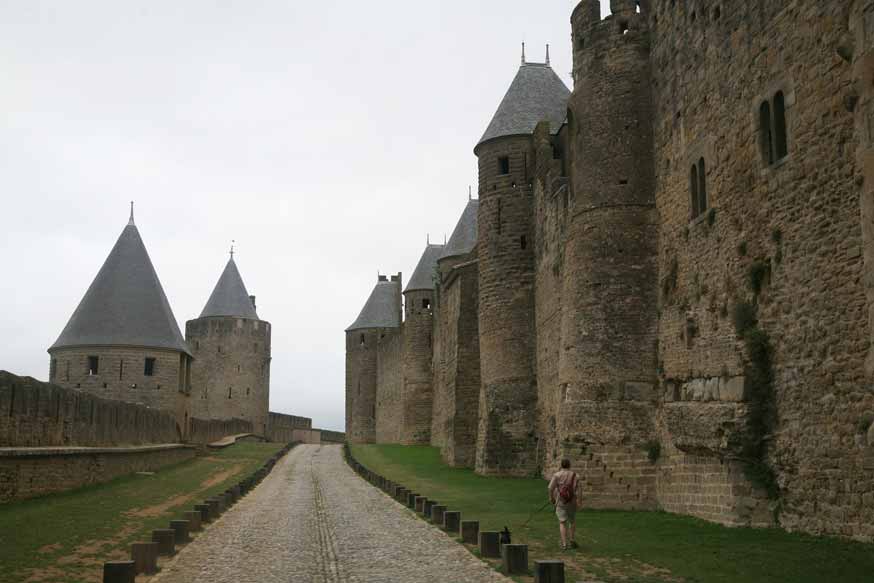 |
||||||||||||||
The campground in the Montagne Noire, a bit outside the city, is one of the the smallest and most beautiful campgrounds these Heinzelmanns ever stayed at. Situated in an old olive grove, the things to do are picking a site between the trees, pitching the tents and the hammock, and relax. The following day, visiting the old town of Carcassonne is on the agenda. Built on a hill above the Aude River, the city is fortified by two mighty ramparts that date back to the Roman times and have since then been reinforced by the Visigoths, Arabs and French in the following 10 centuries – an absolutely impressive fortress. “Wow” Franziska is flabbergasted when standing on the draw bridge between the two walls.
“But Montreal is bigger and much more modern than Carcassonne” states Katharina, and “Don’t forget to invite us for ice cream, Mum. You promised to do so if we come along with you today” is Felix’s top priority. And
with such a wide range of expectations, parents and kids start exploring the streets of Carcassonne, always on the lookout for impressive fortifications, medieval charms, and an ice cream shop. |
||||||||||||||
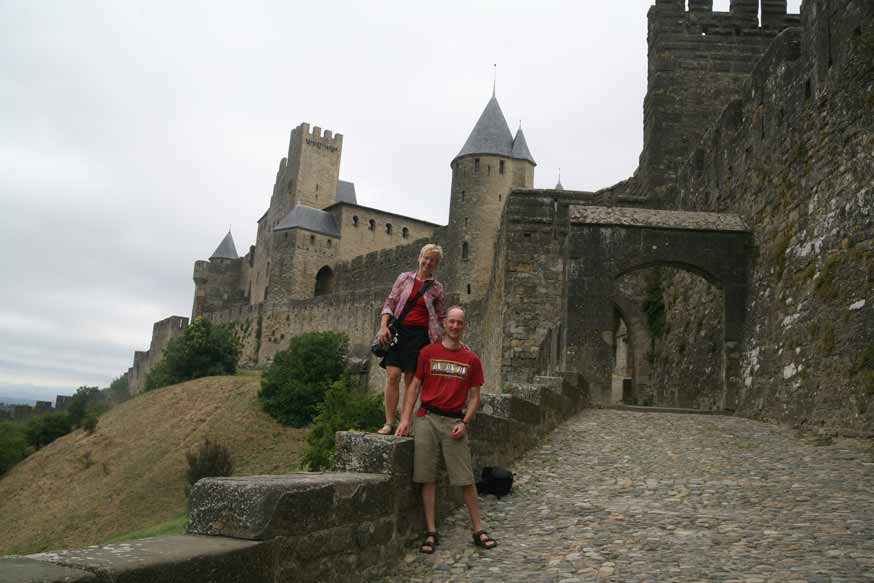 |
||||||||||||||
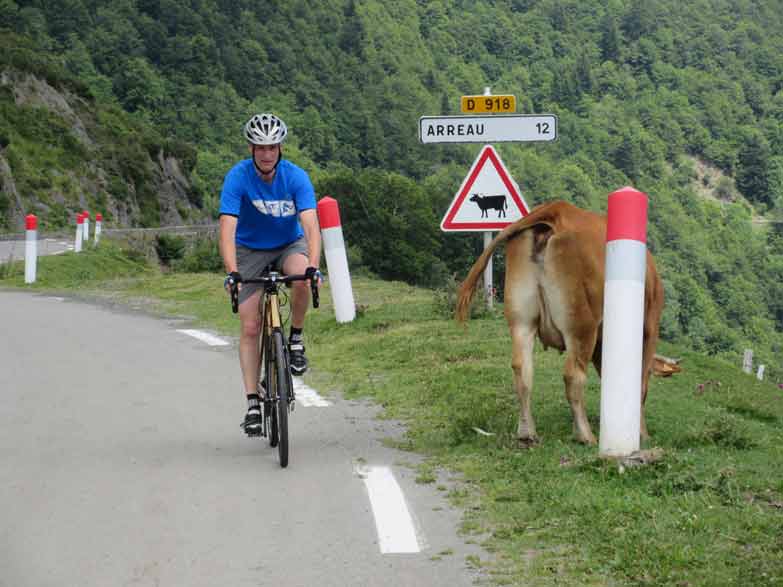 |
||||||||||||||
Then the Pyrenees. The vacation home in Luchon is right in the center, next to the market place of the beautiful little town with a population of about 2500 people, which is quite something in the high Pyrenees. Wednesday and Saturday are the days of the large farmers’ market with bakery-, pastry-, fruit-, cheese-, and sausage-stands, clothes, shoes, books and so on and so forth. During the other five mornings of the week, the various food stands would still be on the market offering everything for a fresh, healthy and yummy breakfast. But the biggest advantage of the vacation home is not its central location, it’s its size. With four sleeping room, which means one for each kid, there’s no arguing about who has to share a room with whom … life can be so good. |
||||||||||||||
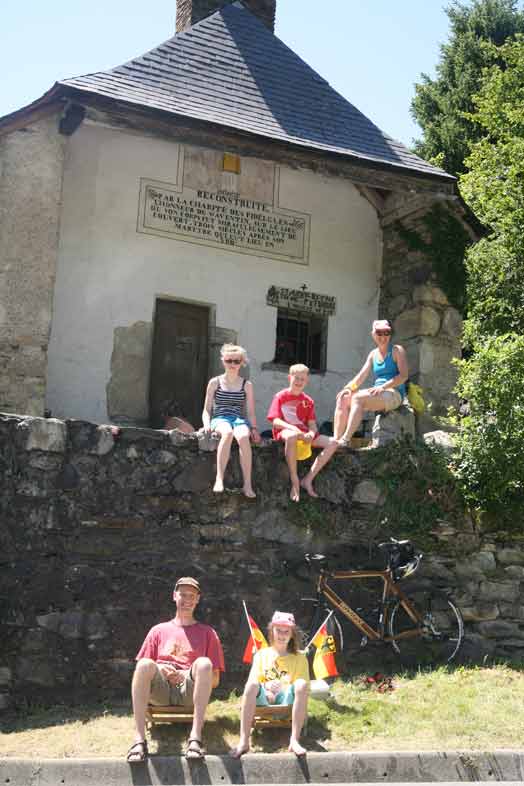 |
||||||||||||||
The Tour de France comes to Luchon twice that year, first for the finish of the first mountain stage in the Pyrenees and the following day, which happens to be Katharina’s birthday, on the way between two passes, the Col du Portillon and the Col de Peyresourde. On such days, the town is buzzing like a beehive. The streets are crowded with people, souvenir and bicycling stands, takeaways and music bands – the town is one big festival, where you have to pay attention not to miss the incoming Tour-de-France cyclist, because their speed is so breathtakingly fast that they pass by you just a few moments after you’ve first seen them approaching. On the next day, their speed is less fast, because the Heinzelmanns have chosen the ascent to the Col de Peyresourde to watch the cyclists. During one of their early morning bike rides Mecki and Mike have spotted a beautiful old chapel with a stony bench in its shadow – la Chapelle de Saint-Aventin – at the first hairpin bends along the climb to the pass. That should be a nice spot to spend the day watching the Tour. Securing this place should be manageable. Just arrive there first and take everything with you to make the day comfortable. But there is one major catch: It’s the vacations, and sleeping in is so much more tempting than leaving early for some old chapel up the hill. “It’s MY birthday, I don’t have to get up early” declares Katharina. “All right, all right” Felix
calms the family down “I can run ahead. “But one of you” and by saying so he looks at Mecki and Mike “has to join me to make sure I find the place.” “Yep” says Katharina “that’s my birthday wish of today: The
guys have to leave for the chapel to reserve a nice place for us, and we girls have ourselves a nice and long birthday breakfast.” There’s not much you can do against determined birthday wishes, so Mike packs some
food, a pair of folding chairs, something to read, and – most important, they bought the stuff first thing in Luchon at the local hardware store – a pot of white wall paint and a small paint roller, then he gets on his bike and
follows Felix up towards the Col de Peyresourde. At the Chapelle de Saint-Aventin, the shady bench is still free. Felix and Mike unpack their stuff, and then Felix works on his contribution to the real Tour de France
atmosphere. In large white letters he paints “Jens Voigt” on the road. Jens Voigt, his favorite Tour de France rider, well deserves the encouragement; after all it’s his record-breaking 17th
Tour de France participation. Also, leaving such a prominent proof of their favorite cyclist helps Felix and Mike standing their ground among all the French, Spanish and Dutch cycling fans at the Chapelle de Saint-Aventin. Shortly after Felix is done with the painting job, the show starts. At first, the cars of the Tour-caravan arrive, throwing yellow and red polka-dotted caps, candies, and all sorts of advertising stuff into the
cheering crowd – hey, it’s a bit like carnival – then Katharina, Franziska and Mecki show up who have watched the caravan pass two hairpin bends further down the road, and eventually the riders fight their way up the pass, already
fragmented into small groups since the crossing of the Col du Portillon. |
||||||||||||||
 |
||||||||||||||
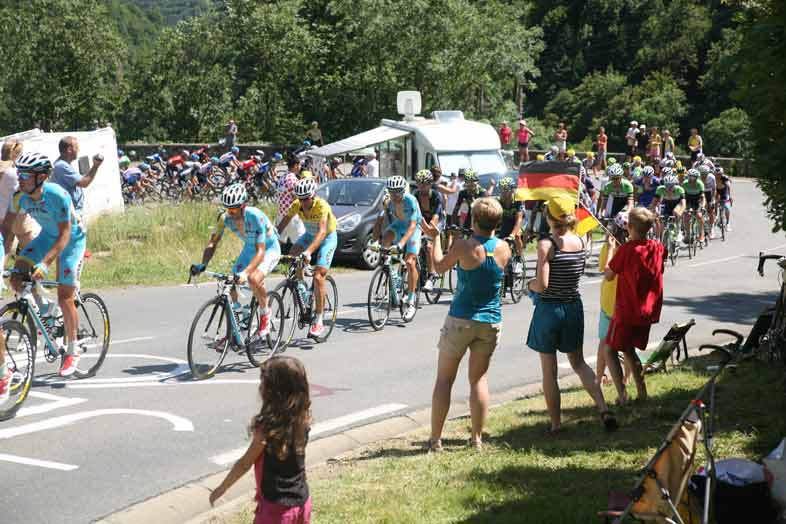 |
||||||||||||||
|
|
||||||||||||||||||||||||||||||||||||||||||||||||||||||||||||||||||||||||||||||||||||||||||||||||||||||||||||||||||||||||||||||||||||||||||||
Mecki and Mike chose the Refuge de Vénasque as the destination, which means the hike would have to cover a change in elevation of roughly 1000 meters from the Hospice de France in the valley, where they could park the car. That should be just fine – neither too short nor too long – and since the weather forecast predicts fair weather and there are still more than five places free at the hut, the trip starts. The weather forecast, however, turns out to be rather inaccurate, or maybe, who knows, Mike’s translation of the weather forecast wasn’t quite the real McCoy, because in linguistically difficult passages, Mike is always tempted to follow his sunny expectations of the weather rather than struggling with the subtleties of the French language, … , anyway, at about a quarter up the ascent, it starts to rain really hard. Luckily, the Hospice de France is not yet too far away, for in the Hospice it is warm and cozy, and a mug of hot chocolate helps keeping spirits up. The second attempt to reach the hut is then successful, but it is a close call. A few minutes after reaching the hut, a vigorous hailstorm sets in. The hut, by the way, turns out to be different than expected. Everything is considerably smaller, less modern, and less comfortable than anticipated. The dark dormitory with the charm of a concrete bunker is packed with 12 mattresses, no beds, a windowless Oktoberfest-type tent serves as the “dining room”, and instead of a proper washroom there is one sink for all the guests with fresh water from the adjacent alpine lake and a porta-john, but a comfortable one, because it allows flushing with pond-water.
“Did you know this place is like that?” asks Katharina, while snuggling into Mecki’s lap in the draughty tent. “No, really not”, is Mecki’s reply, “this is sort of more rustic than I expected.” The more so as in this hut, which
as the wardens Emma and Guilhem explain is the smallest mountain hut on the French side of the Pyrenees, there is no menu. You eat what’s put in front of you. But this is really yummy. Four courses – pea soup,
lasagna, local cheese, and pear fancy cake as dessert. Particularly the cake is sooo yummy that Katharina and Mike ask Emma to write down the recipe. Then the evening comes to an end with some card games. |
||||||||||||||||||||||||||||||||||
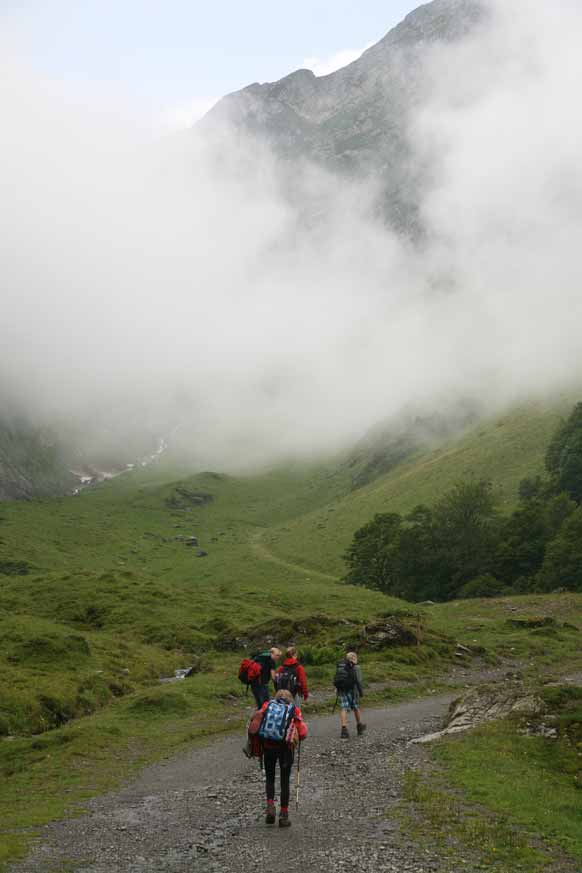 |
||||||||||||||||||||||||||||||||||
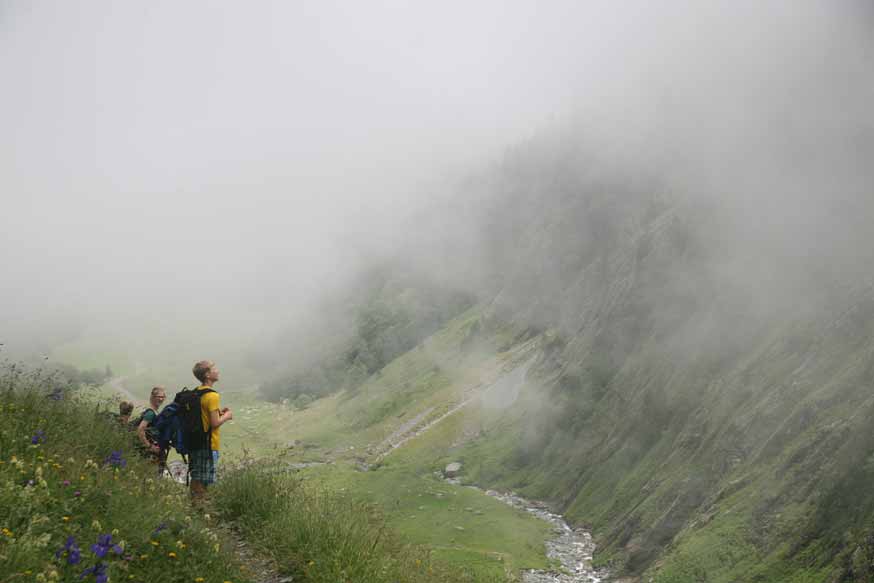 |
||||||||||||||||||||||||||||||||||
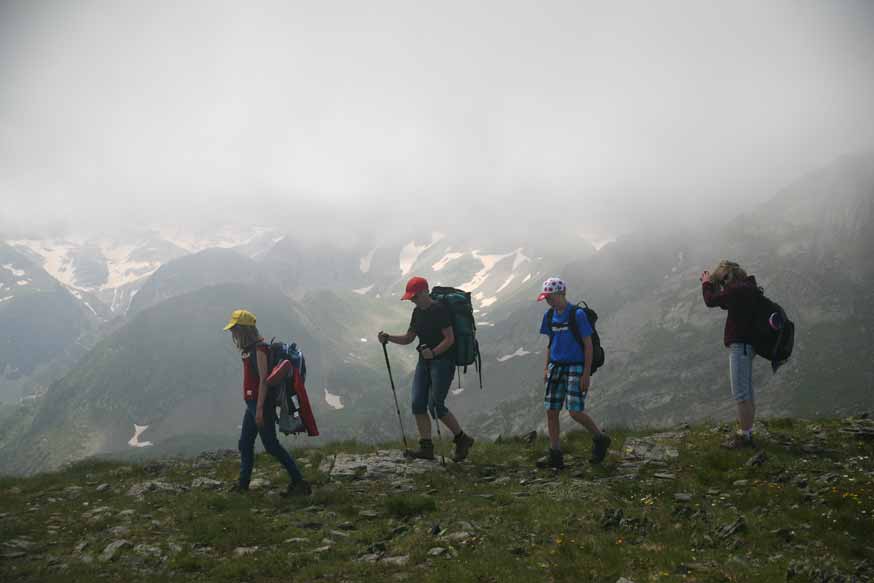 |
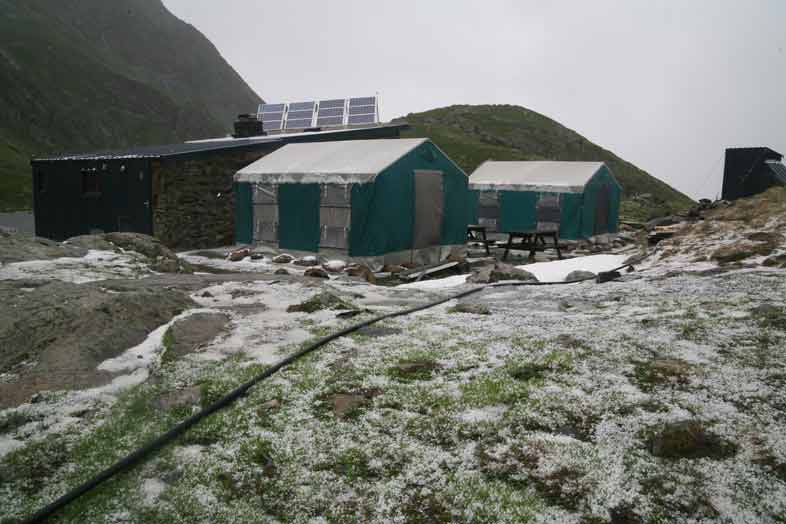 |
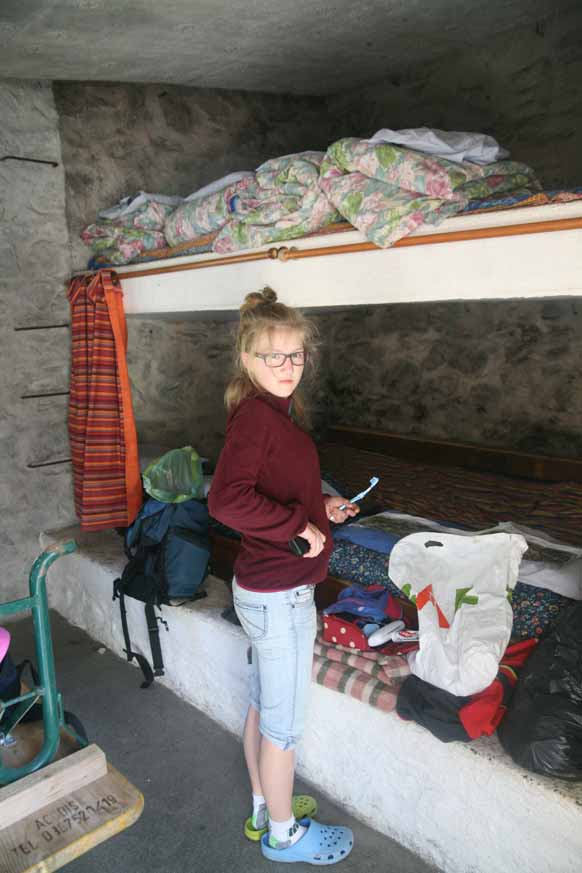 |
||||||||||||||||||||||||||||||||
For Felix, the night in the hut becomes more exciting than he had hoped for. Simple things can be so complicated if you find yourself in some
remote hut high up in the Pyrenees. “Mum, I gotta go to the loo” he mumbles to Mecki in the pitch-black darkness. |
||||||||||||||||||||||||||||||||||
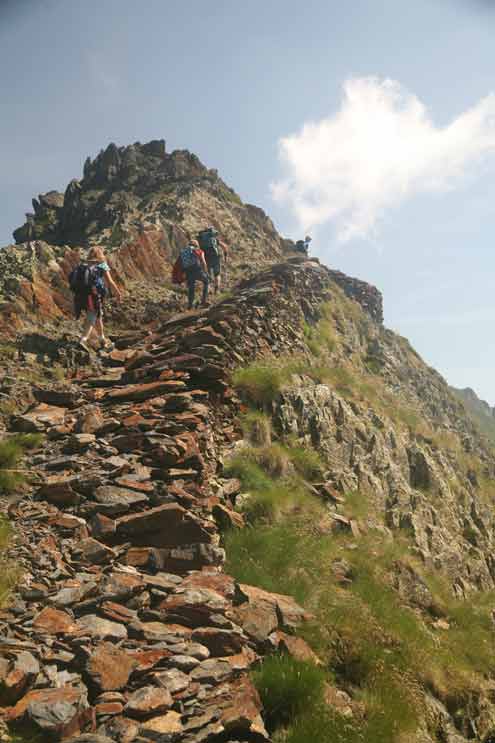 |
||||||||||||||||||||||||||||||||||
„Mmmmh“ grunts Mecki. |
||||||||||||||||||||||||||||||||||
“But I can’t see anything.” |
||||||||||||||||||||||||||||||||||
„Mmmmh.“ |
||||||||||||||||||||||||||||||||||
“I hate it if I can’t see a thing.” |
||||||||||||||||||||||||||||||||||
„Mmmmh.“ |
||||||||||||||||||||||||||||||||||
„I can’t find my flashlight, Mum, why don’t you look for yours.“ |
||||||||||||||||||||||||||||||||||
„Mmmmh.“ |
||||||||||||||||||||||||||||||||||
“Mum?” |
||||||||||||||||||||||||||||||||||
„Mmmmh.“ |
||||||||||||||||||||||||||||||||||
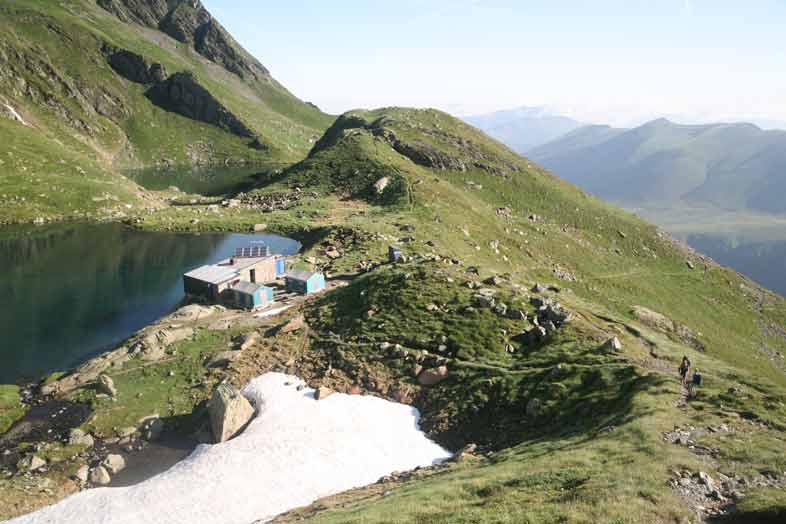 |
||||||||||||||||||||||||||||||||||
“Tell me: When I leave this room, are there brown bears outside? ... |
||||||||||||||||||||||||||||||||||
... I don’t want to run into a brown bear in the dark.” |
||||||||||||||||||||||||||||||||||
“Mmmmh” grunts Mecki for a last time, then, still half asleep she searches the head-end of her mattress with her hands and gives Felix her flashlight. The situation is saved. |
||||||||||||||||||||||||||||||||||
The next morning, the weather is perfect with a sunny blue sky. The last brown bears of the Pyrenees haven’t shown up at night, only a bunch of griffon vultures circle the skies, but these are, at least as long as one is alive, pretty harmless. It’s time to take off. At the Port de Vénasque at the Spanish-French border the Pico Aneto comes in sight, the highest peak of the Pyrenees with an elevation of 3404 m. From there, the path leads across the Port dera Picada and the Pic de la Mounjoye into the valley, and through lovely flower meadows back to the Hospice de France. |
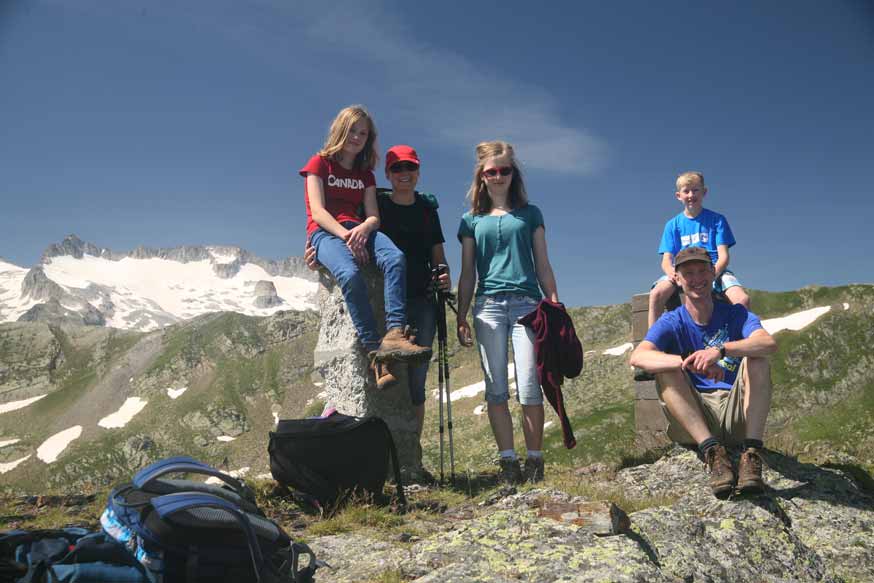 |
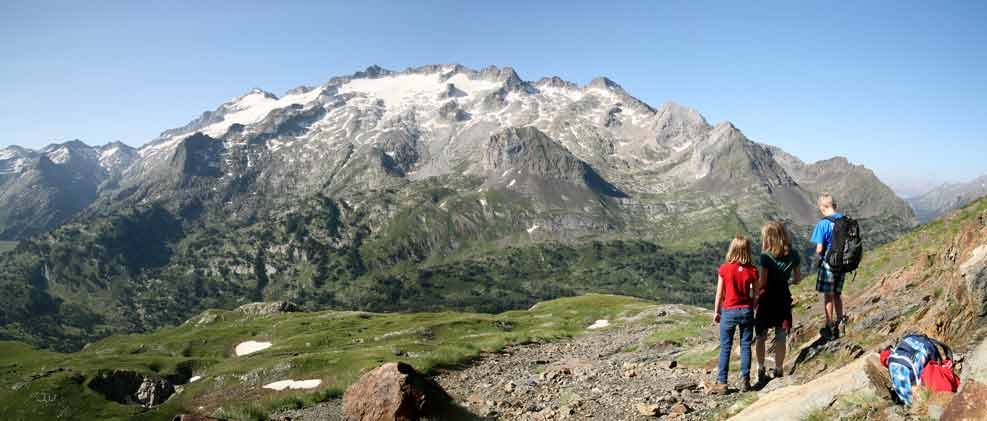 |
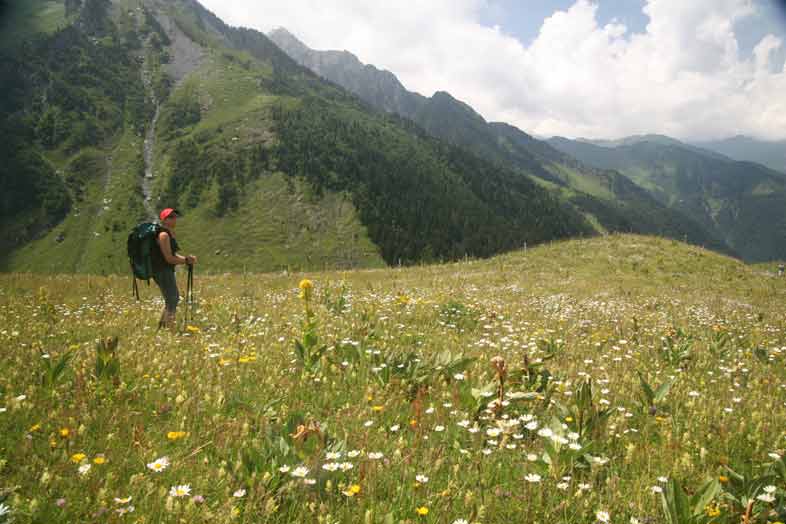 |
|||
In the remaining days in Luchon, time goes by fast with short hikes, swimming, cycling, and visiting the farmer’s market. And on the way back home to Germany there is one last highlight, particularly for the kids: four days of sun, wind, and sea on the Île de Ré, an island off the French coast in the Atlantic. While the kids enjoy the beach, Mecki and Mike check out Saint-Martin-de-Ré, the historic capital of the island. And what a beautiful walled city this is: Inside the walls, with the exception of the inevitable tourist buzz, time seems to have stood still since the city has been founded in the 17 th century. The streets are made of cobblestone, the lovingly maintained houses of natural stone, and hollyhocks provide colourful spots at every corner.
“So tell me, guys” asks Mecki while driving the car back home to Rheinbach after a last stopover in Orléans “How did you like the vacations?” “Yep” says Mike “France is great.”
“But next year” says Franziska “we should chose a place with a climbing gym close by.” “And be more often at the beach” add Felix and Katharina.
“But kids, don’t forget that Dad and I still have to cycle the Col d’Aubisque and the Col du Soulor” says Mecki. |
|
|
||||||||||||||||||||||||||||||||||||||||||||